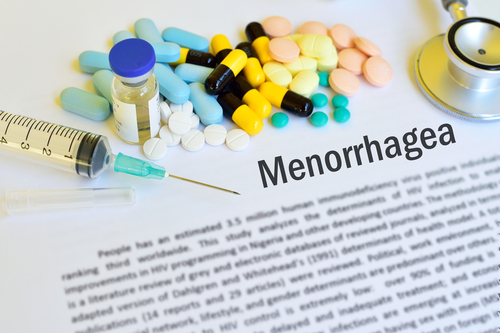Menorrhagia is a medical condition that concerns heavy and extended periods of bleeding during menstrual periods. Women who are diagnosed with this condition often have such horrible menstrual cycles that it affects their lives.
Fortunately, with the proper treatment, you can manage your symptoms and have a better quality of life.
Please reach out to our women’s health doctors to schedule a visit if you want to learn more about how to control your menstrual cycles.
Symptoms
Some common menorrhagia symptoms are embarrassing and cause significant inconveniences in your life. Bleeding through pads and tampons frequently throughout the day can be an indicator that something is wrong.
Many women with this condition report that using both pads and tampons simultaneously is not enough to control their flow.
Having this type of bleeding that goes on longer than a week is also a sign that you need to talk to a doctor.
While passing blood clots can be expected during your period, if they are bigger than a quarter, you should tell your doctor about this.
Other concerning symptoms include signs of anemia such as dizziness, shortness of breath, and fatigue.
Causes
There are many possible causes of menorrhagia, and you should consult with a doctor before self-diagnosing any of these conditions.
A hormonal imbalance could cause excessive bleeding if the lining of your uterus grows too quickly between periods.
Ovarian dysfunction is another possible cause. If your ovaries are not producing the proper amount of hormones, it can affect your menstrual cycle.
Uterine fibroids (benign tumors) or polyps (benign growths) can cause your periods to be heavier than usual.
Using an IUD can interrupt your normal menstrual cycle and sometimes cause excessive bleeding and large blood clots.
A blood clotting disorder may also be the reason why you are experiencing heavy bleeding during your menstrual cycle.
There are many other possible causes of menorrhagia. Please consult with a doctor to receive a diagnosis.
Risks of Menorrhagia
There are health risks associated with heavy bleeding and large blood clots. For one, you can suffer anemia from excessive loss of blood. Anemia is an iron deficiency caused by your body’s attempt to compensate for all the lost red blood cells.
Risk factors also include the dysfunction of your ovaries. Women with a healthy menstrual cycle will release one egg every cycle. If your ovaries fail to do so, you may lack enough progesterone, which can cause you to have heavy period bleeding. Young women in their first year after their first period are likely not to produce an egg every cycle, and they may also have one period but nothing for several months.
How Menorrhagia is Treated
Depending on your diagnosis and the cause of your excessive bleeding, you will have options to treat your menorrhagia. Many women are prescribed some form of birth control to regulate their hormonal production and help them manage their periods. The most frequently used contraceptives to treat excessive period bleeding include IUDs, progesterone pills, combination oral contraceptives, and rings.
Some women are prescribed medication such as Advil, Motrin, or Aleve, which can reduce blood loss during their periods. These medications can also help with pain management.
Lastly, Your doctor may prescribe a medication called Lysteda to help reduce blood loss during your period and is only required to be taken while you are on your period.
Talk to a doctor to learn more about what treatments are available for you.
Call Our WNY Women’s Health Doctors Today
Taking care of your health is important to us. If you believe you have menorrhagia, we would like to see you right away for a gynecological appointment. By prioritizing your health, you have a better chance of increasing your quality of life. Call our office to schedule a visit with our GYN today.

